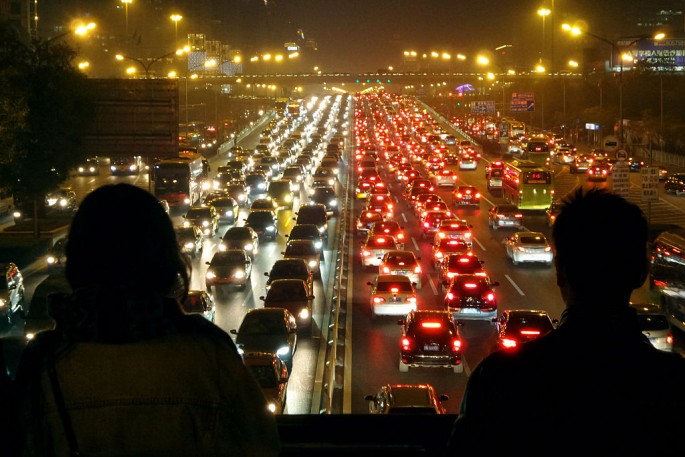As traffic congestion in Beijing becomes worse, authorities in the Chinese capital are debating on the possibility of levying a congestion tax in the city's high-traffic locations, China Daily reported.
However, the idea of hitting drivers with yet-unspecified charge is not generally accepted by daily commuters.
"To collect congestion fees may be effective to a certain degree," said an official. "But you can't sort out Beijing's traffic problems by such short-term measures. It may be that you have to change the way the nation's capital works."
For the officials' part, the Beijing government has been in the process of relocating most of its offices into suburbs. Authorities hope that this move will help ease traffic in central Beijing, where currently most public offices can be found.
Other measures have also been in effect, such as the increase in parking fees and the implementation of limits as to when people can drive based on their plate numbers.
Nonetheless, the license-plate restrictions have had the opposite effect, as pointed out by Environmental Studies Renmin University professor Ma Zhong.
"Those policies may have intended to control the number of vehicles. But they ended up just doing the opposite, because as a result of the controls, there was a further stimulation of vehicle purchases," Ma pointed out.
Meanwhile, Zheng Wentao, an Earth and Space Sciences associate professor from the Peking University, suggested that for the traffic congestion to be eliminated, officials must look into fixing the city's road layout.
"The problem of traffic jams are best resolved if the roads themselves are well designed. It's not difficult to figure out where the problem areas are and what are the main factors behind the traffic jams," Zheng noted.
People engaged in the debate via online platforms remarked that the issue "goes beyond restricting vehicles or charging people more," China Daily wrote.



























